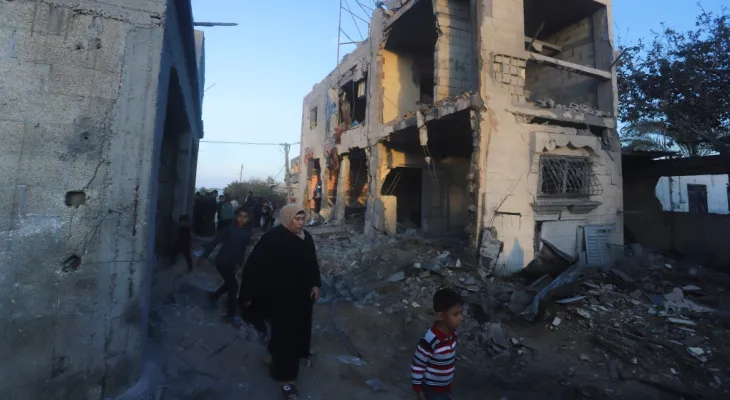Search here
Newspaper
Search here

Arab Canada News
News

Published: March 2, 2024
A senior US administration official said on Saturday that Israel has basically endorsed a proposed framework for a ceasefire in Gaza and a hostage release agreement, and it is now up to Hamas to approve it.
The official confirmed that the Israelis have "more or less accepted" the proposal, which includes a six-week ceasefire in Gaza in addition to Hamas releasing hostages considered to be at risk, including the sick, wounded, elderly, and women, noting that the Israelis have essentially signed off on the elements of this arrangement,” and “at the moment, the ball is in Hamas’s court and we continue to push this matter as hard as we can.”
The official briefed reporters at CTV News on condition of anonymity because they are not authorized to discuss details of the ongoing ceasefire talks publicly.
The European Union's diplomatic service said on Saturday that many Palestinians who were killed or injured in the chaos while trying to get flour bags from a humanitarian aid convoy were hit by Israeli army fire and called for an international investigation.
Anger is escalating over the desperation of hundreds of thousands of people struggling to survive in northern Gaza after nearly five months of fighting between Israel and Hamas. US military aircraft began the first air-drops of thousands of meals in Gaza, and the Jordanian and Egyptian armies said they also conducted air drops.
The European External Action Service said the responsibility for the crisis lies with “restrictions imposed by the Israeli military and obstacles imposed by violent extremists on the delivery of humanitarian aid.”
Residents of northern Gaza confirmed that they resorted to searching through piles of rubble and garbage for anything to feed their children, who barely eat one meal a day. Many families have started mixing animal and bird feed with grains to bake bread. International relief officials say they face catastrophic hunger.
The World Health Organization said at least 10 children have died of starvation, according to hospital records in Gaza.
Northern Gaza bears the brunt of the conflict that began when Hamas launched an attack on southern Israel on October 7, killing 1,200 people, most of them civilians, and holding about 250 hostages.
The Gaza Ministry of Health said the number of Palestinian deaths due to the war has risen to 30,320. The ministry does not distinguish between civilians and fighters in its figures, but it says women and children make up about two-thirds of the dead.
The Gaza Ministry of Health said that in Rafah city in the far south of Gaza, where now more than half of the Strip’s population has taken refuge, an Israeli airstrike on Saturday hit tents outside the Emirati hospital, killing 11 people and injuring about 50 others, including health workers.
The Israeli air, sea, and ground attacks have turned a large part of densely populated northern Gaza into rubble. The army has asked Palestinians to move south, but it is believed that up to 300,000 people remain in the area.
Karl Skau, Executive Deputy Director of the World Food Programme, said this week that nearly one in six children under the age of two in the north suffers from severe acute malnutrition and wasting, which is “the worst level of childhood malnutrition anywhere in the world.” “If nothing changes, famine is imminent in northern Gaza.”
Skau explained that people overwhelmed the trucks delivering food aid to the area and took whatever they could, forcing the World Food Programme to suspend aid deliveries to the north.
International mediators hope to reach an agreement on a six-week ceasefire and exchange some Israeli hostages for Palestinians held by Israel before the start of the holy month of Ramadan on March 10.
Comments